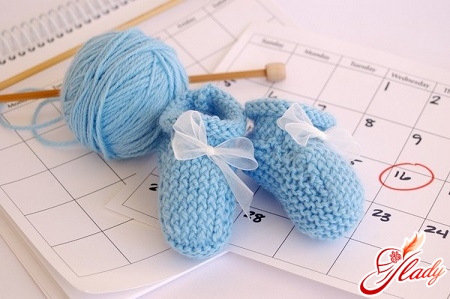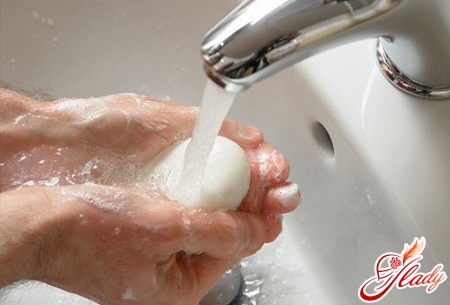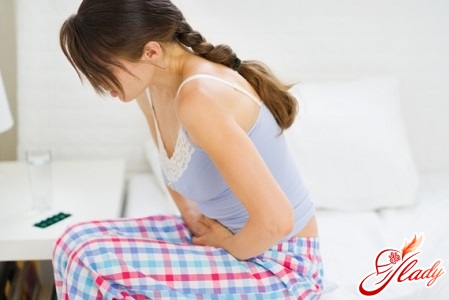
Pain in the bladder area - commonphenomenon in women. Such pain can be indicative of various diseases, which sometimes need to be urgently treated. Often the pain is transient, but it can also go to the chronic stage. Then cure the disease can be very difficult. Do not underestimate the situation when the bladder hurts, and let it slide. It is important to know which diseases are accompanied by pain and discomfort in the bladder area, as well as the symptoms of these diseases. This will help to pay due attention to the ailment and at the time of contacting a specialist for help.
Possible causes and symptoms of diseases of the bladder
It happens that there is no way to go to the doctor. Then, knowledge of what symptoms are characteristic of a particular disease can become useful. To diagnose oneself without having medical education is a completely ungrateful thing, but sometimes there are situations when it does not work out otherwise. Then you can use the information provided in our article. But do not forget that this is not a panacea, but an emergency method only, when you really do not have the opportunity to consult a specialist, and unpleasant feelings do not give rest. And as soon as possible, immediately consult a specialist! If a person suffers pain in the bladder, it indicates the defeat of the body itself or about the disease of another organ, when the pain "gives" to the bladder, which actually turns out to be healthy. For example, with diseases of the kidneys, coccyx, organs of the reproductive system, the bladder can also be affected. The cause of pain can be detected only by a doctor in the course of a comprehensive examination of the patient. However, many diseases are accompanied by uncomfortable sensations and pains in the bladder, which concern only this organ. Now we will examine in more detail the clinical picture of the main diseases that can be the cause of what the bladder hurts.
- Severe pain that is not associated with the process of urination and occurs when shaking in transport, physical activity, etc. Or, on the contrary, pain can appear only at the end of urination.
These symptoms are characteristic of urolithiasis. When a person is at rest, the stones do not affect the bladder, but it is worthwhile for a person to start moving, as the stones also move, move into the bladder cavity, touch his walls and injure him, causing unbearable pain. Diagnosis and treatment are carried out only in the hospital. And the sooner a person turns to doctors, the better.
- Pain aching, pulling.
This can talk about inflammatory processes ingenitals. That's why urologists always refer women to gynecologists to exclude gynecological diseases. If the cause is still this, then usually such symptoms are accompanied by adnexitis, perimetritis, parametritis. These are infectious diseases. Infections penetrate through the reproductive system into the bladder and cause inflammation in the latter.
- Strong, sharp pain that can not be tolerated
Such pains are often accompanied by tumorsBladder. As the tumor grows, pain increases. When the disintegration of malignant cells occurs, a person's life turns into a torment, so painful are the sensations experienced.
- Pain is observed in the bladder itself and in the lower abdomen as a result of trauma. Constant false urge to urinate, when drops of blood come out instead of urine.
If a person is injured, as a result of whichIt began to disturb such feelings, perhaps, a rupture of the bladder occurred. If, after a while, the symptoms characteristic of peritonitis are observed, this means that a bladder rupture has occurred inside the peritoneum. 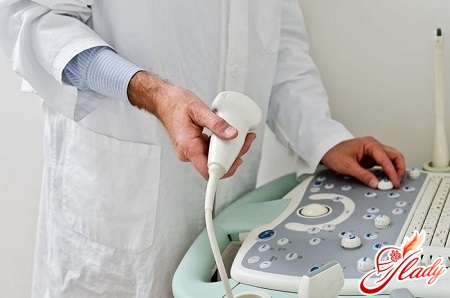
Cystitis is the most common cause of pain in the bladder
The most common cause of pain in the urinary tracta bubble in women - cystitis and cystalgia. The symptoms are very similar - that's why it's so important to undergo tests at the doctor to make a correct diagnosis. With cystitis, pain is observed during urination, with peak pain reaching at the end of the act and after it. Then the pain subsides. In addition, urination is increased, and in the urine contains pus. At the onset of the disease, pain increases as the bladder becomes full, as urine presses against the walls of the inflamed bladder. Then, after urination, the pain subsides to the next act. If the disease is in a neglected stage, then the pain practically does not stop. Now there is a lot of drugs, thanks to which you can cure cystitis. However, you can not in any way stop treatment, once relief has come, the pain has passed. Cystitis is so tricky that even when you seem to be nothing to worry about, until the final disposal of the ailment is still far away. Many patients stop treatment without bringing it to completion, thereby condemning themselves to chronic cystitis, which resumes at any time of the year. In cystalgia, sensations are similar to cystitis, subjective complaints of the patient are the same as in cystitis, but only the examination shows that the mucosa of the bladder is either not inflamed at all or has a minor inflammatory process. Naked eye or symptomatology of this can not be said. If you engage in self-medication (naturally, wrongly making a diagnosis), then it will lead to nothing, except the aggravation of the disease.
What should I look for and how to treat the disease of the bladder?
Sometimes a person may start to disturb someunusual sensations that can not be immediately called uncomfortable or painful. And it is not immediately clear, everything is in order or it is worth more closely to look at your body. Diseases of the bladder of any etymology in women are very rapidly developing. Therefore it is very important to be able at the time to suspect something is wrong and turn to a specialist. Here is a list of symptoms that should alert you:
- you do not have time to reach the toilet, urinary incontinence is observed;
- involuntary urination during sleep;
- leakage of urine during exercise, sports, coughing, sneezing, etc .;
- urination is accelerating, and portions for each act are small;
- urination intermittent and weak;
- the bladder is not emptied completely;
- the act of urinating causes pain that does not allow the process to continue;
- in the process of urination, there is discomfort, burning sensation, pain, itching, etc.;
- presence of blood in the urine.
If you have one or moreSymptoms listed above, this is an occasion to consult a doctor. Since these symptoms do not pass by themselves and, conversely, increase with time, which eventually leads to a significant decrease in the quality of life: problems with the bladder in women can lead even to psychological problems, insomnia, irritability, etc. 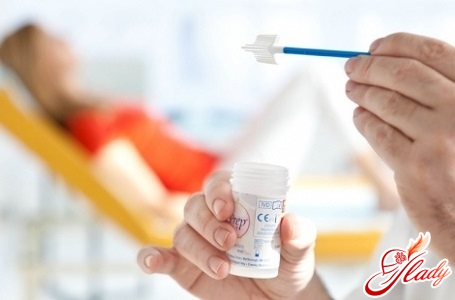
Methods for treating bladder diseases
The most reasonable, if the bladder is ill, is notto pull a visit to the doctor. Usually, when there are problems in the genitourinary area, they turn to the urologist, who will necessarily send you to the gynecologist. In addition, in some cases a visit to an oncologist will be required. Note that problems with the bladder - not the case when it is worthwhile to engage in self-medication, because, as you already know, he can get sick for a variety of reasons that only a specialist can reveal. Having determined the cause of the pain and having diagnosed, the doctor will prescribe medication. It can take place at home or in a hospital, depending on the diagnosis. In any case, in addition to medication, the doctor can prescribe the following treatment methods:
- gymnastics for Kegel, which helps to strengthen the muscles of the pelvic floor, which is very important for women;
- the regime of the day, suggesting a full-fledged sleep, etc.;
- observance of all rules of personal hygiene;
- strict diet, which consists in the ban on smoked, salty and spicy dishes;
- avoidance of stress, hypothermia, excessive physical exertion, prolonged stay in a sitting position.
Note that all these rules should become for you a norm of life after recovery, because only in this way you will be able to protect yourself against relapses in the future.






